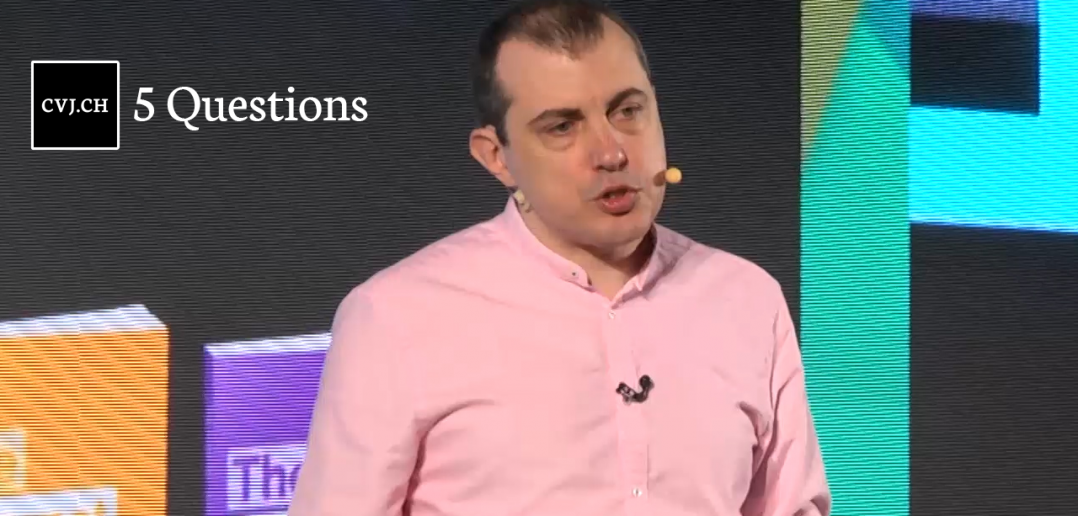
How will blockchain technology affect our lives? Can digital currencies establish themselves as an asset class? The questions that arise in the world of crypto seem limitless. We limit ourselves to five and turn to experts in the field.
The development in the blockchain and cryptocurrency space as well as the rapidly growing ecosystem around the new technology is fascinating. Behind it are people who believe in this innovation from the bottom of their hearts. People with a pronounced passion for the field, contagious enthusiasm and entrepreneurial spirit.
In the CVJ.CH format “5 questions”, prominent and respected specialists and entrepreneurs in the crypto space are asked for their opinion. Different views and exciting contributions from the ever-changing blockchain world are presented in response to the same recurring questions.
Brief introduction Andreas Antonopoulos
Andreas is a best-selling author, speaker, educator, and expert in Bitcoin and open blockchain technologies. He has served as a teaching fellow for the free “Introduction to Digital Currencies” course offered to the public at the University of Nicosia. Along with co-authoring the course curriculum, Andreas has also written two best-selling technical books for programmers, “Mastering Bitcoin” and “Mastering Ethereum”. He has also published “The Internet of Money” book series, which focus on the social, political, and economic importance and implications of these technologies. In addition, andreas is a permanent host on the “Let’s Talk Bitcoin” podcast with more than 400 episodes recorded to date.
CVJ.CH: How did you come across the crypto space?
Andreas Antonopoulos: I read an article about Bitcoin in 2012 which lead me to the Satoshi Nakamoto whitepaper. My background in computer science, distributed systems and security made it a compelling read and I switched the focus of my work to Bitcoin immediately.
Where will the blockchain technology have its biggest impact?
In creating a truly open and accessible financial system for all 7.5 billion people, much like the Internet has done for communications. The open Internet of Money, where anyone, anywhere can participate in the global economy without intermediaries, and geopolitical barriers.
Besides finance and money as well as identity and reputation there is governance, which is one of the main application of systems like Ethereum. It’s about the ability to express control over something in a decentralized way that is not just money, but maybe something like a voting system for example.
What will it take for digital currencies to become more widely adopted?
Time. Nothing more. The future of money is digital and open. The existing closed systems are fundamentally unfair and exclude billions of people, creating massive economic inequality. If you have a system where conditions are more open, free and efficient, there’s no question about the outcome. The free, open and efficient system beats the closed, centralized and inefficient system every time.
Will digital currencies establish themselves as an asset class and can Bitcoin remain at the top?
They already have established themselves. Bitcoin offers a unique set of features that are very difficult to replicate or replace. I firmly believe that we need a strong underlying payment and money layer first before we can really explore some of the other fields very well. So it’s very unlikely that Bitcoin will be overtaken by any other project, but only time will tell.
What is your view on the future of tokenized assets (e.g. financial products on the blockchain)?
The future of financial instruments and assets is also open and digital, just like the future of money. But before we can get there, we need to build the foundational layer of open digital money. Until that happens, tokenized assets have to rely on centralized on/off ramps that are fragile and easily controlled.
*Originally posted at CVJ.CH

